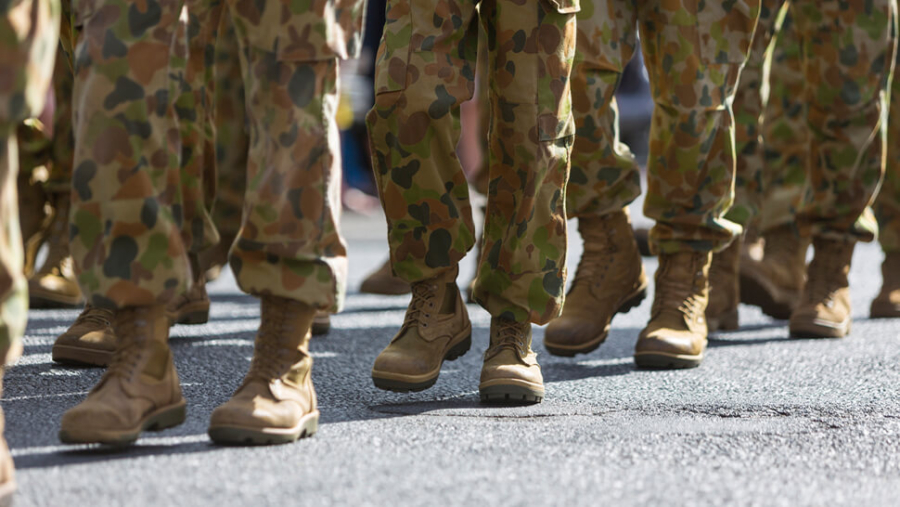
Saluting those who serve – why businesses should sign the Armed Forces Covenant
26th June 2019

We are proud to salute our forces this Armed Forces Week and celebrate the fact that we signed the Armed Forces Covenant almost five years ago – the more businesses sign up, the stronger the message of support to our forces and the more value those people can bring to the wider workforce.
So why should businesses employ reservists, cadet force adult volunteers or those leaving the forces and what difficulties does that present? Why would businesses and employers want to sign the Covenant, and what does the Covenant mean for those who have served?
What is the Covenant?
It is a promise from the nation ensuring that those who serve or have served in the Armed Forces and their families (known generally as the Armed Forces community), are treated fairly. By signing the Covenant, a business commits itself to supporting the Armed Forces community by recognising the value that serving personnel, veterans and military families contribute to our businesses and our communities.
What can businesses and employers do?
How an individual business shows that commitment is for them to decide, but action is the key. The Covenant is not a signature in a shiny frame to display proudly by reception – it is a commitment to ensuring that no member of the Armed Forces community suffers a commercial disadvantage because of their service.
Businesses could:
• Commit to ignoring pre-conceptions about members of the Armed Forces community
• Offer guaranteed interviews to veterans and other members of the Armed Forces community who meet the minimum selection criteria.
• Recognise equivalent military skills and qualifications when interviewing for new positions
• Focus recruitment efforts on the Armed Forces community by working with the Career Transition Partnership and advertising through ‘service-friendly’ recruitment agencies, military charities and publications
• Accommodate reservist training commitments by offering additional annual leave and other support
• Accommodate mobilisation of reservists, if they are required to deploy
• Commit to finding alternative employment within the business in another location, if an employee is forced to relocate owing to a partner or family member’s military service
• Look sympathetically on requests for holidays before, during or after a partner or family member’s overseas deployment
• Act sympathetically and with understanding towards members of the Armed Forces community who have been bereaved, whose loved ones have been injured or who might have caring commitments owing to their loved one’s injuries and consider practical assistance such as unpaid leave or additional flexibility in an employee’s role
• Make services easily accessible to members of the Armed Forces community by holding briefing days, showcasing at resettlement events, attending garrison welfare offices and liaising with military charities about the needs of veterans in their community
• Offer discounts on good and services to members of the Armed Forces community – particularly in relation to services that are particularly relevant, such as legal services.
What are the business benefits?
Former service personnel have a range of transferable skills acquired as a result of their military service. The Armed Forces expect high standards of professionalism, behaviour, self-discipline and selfless commitment of all serving personnel, together with expert ability in their chosen field. The standard of training given to military personnel across all services is second to none, whether that be trade training for specific disciplines or leadership and management training which is required of all but the most junior ranks.
Military families are, by their very nature often adaptable, resourceful and resilient. They have to forge relationships in the most unlikely circumstances, often in fast changing environments and that can result in great people skills and self confidence.
And, let’s not forget, a great many veterans and service spouses are highly qualified to boot – and we should know!
The legal bit
Because the Armed Forces community is not legally defined, their rights are largely the same as any other employee’s.
Reservists however do not need to announce that fact to their employers, and employers have no obligation to give them time off (paid or not) for reservist training or mobilisation, although they are obliged to reinstate any employee who was employed in the four weeks prior to their mobilisation on the most favourable terms possible. Mobilisation also does not break an employee’s continuous service, but it does pause it.
Finally, and perhaps most importantly, dismissing an employee because of, or for a reason connected to, their membership of the reserve forces, will amount to unfair dismissal, in relation to which there is no qualifying two-year period before a claim can be brought.
Creating a valuable bond
Signing the Covenant helps to create a mutually beneficial relationship between the Armed Forces community and the wider business world – acting upon that commitment recognises their service with fair treatment and widens the pool of talent available to commerce – our own experience, employing veterans, serving military personnel and military spouses, is that our commitment has been wholly beneficial to us as a firm.
To find out more and to sign the Covenant yourselves, visit https://www.armedforcescovenant.gov.uk/get-involved/sign-the-covenant/
For further information on this article please contact employment expert Rebecca Kirk, on 01432 349709 or email [email protected]










